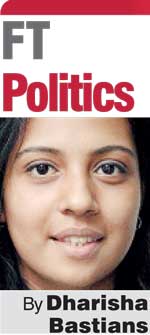A Brief Colonial History Of Ceylon(SriLanka)
Sri Lanka: One Island Two Nations
A Brief Colonial History Of Ceylon(SriLanka)
Sri Lanka: One Island Two Nations
(Full Story)
Search This Blog
Back to 500BC.
==========================
Thiranjala Weerasinghe sj.- One Island Two Nations
?????????????????????????????????????????????????Thursday, November 3, 2016
The Committee on Public Enterprise (COPE), a body of parliamentary
oversight into the performance and fiscal discipline of corporations
that are fully state-owned or in which the Government has a financial
stake, has conducted its sittings in-camera since its establishment in
1979. In other words, traditionally and by law its hearings and
deliberations must occur behind closed doors. Its members, comprising
parliamentarians from parties represented in the legislature, and
especially the Chairman of the Committee are expected to protect that
confidence. COPE has quasi-judicial powers and is empowered to summon
officials and documentation, hear testimony and obtain expert opinion to
aid their inquiries. Once the Committee concludes deliberations and
officially presents its findings to Parliament, the recommendations
contained in its reports are considered directives to the public sector
enterprise concerned, for compliance.
Over the past two weeks, the COPE has dominated the news cycle, as the committee set about its most controversial business since it was reconstituted following the August 2015 parliamentary election. Remarkably, representing a major break with tradition, very little about its latest proceedings and deliberations on the Central Bank Treasury bond scandal could be considered ‘in-camera’.
Over the past two weeks, the COPE has dominated the news cycle, as the committee set about its most controversial business since it was reconstituted following the August 2015 parliamentary election. Remarkably, representing a major break with tradition, very little about its latest proceedings and deliberations on the Central Bank Treasury bond scandal could be considered ‘in-camera’.
COPE A bridge between despair and hope.docx by Thavam Ratna on Scribd

